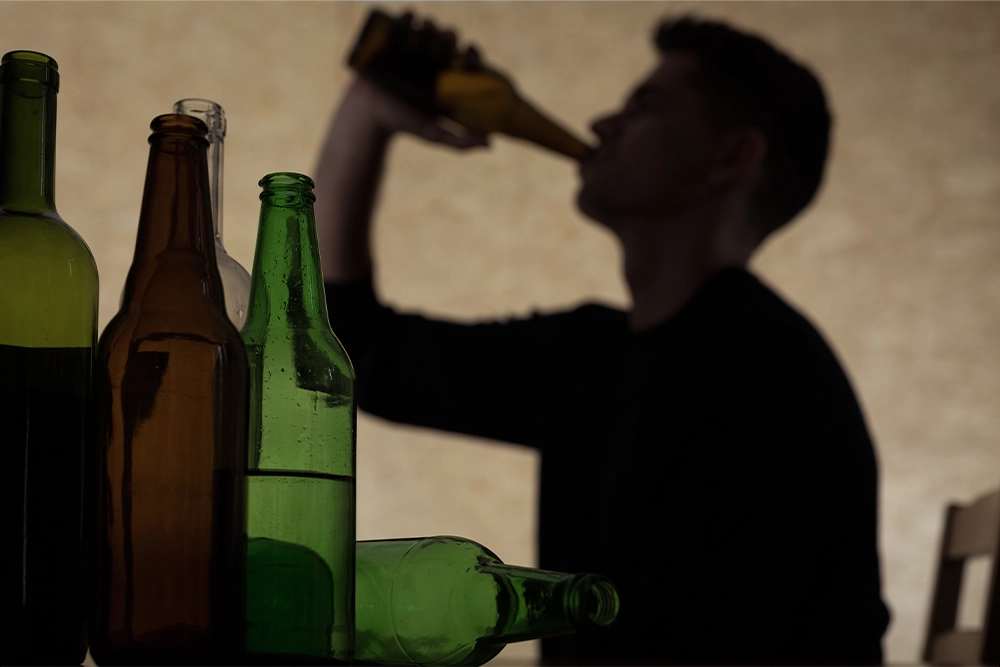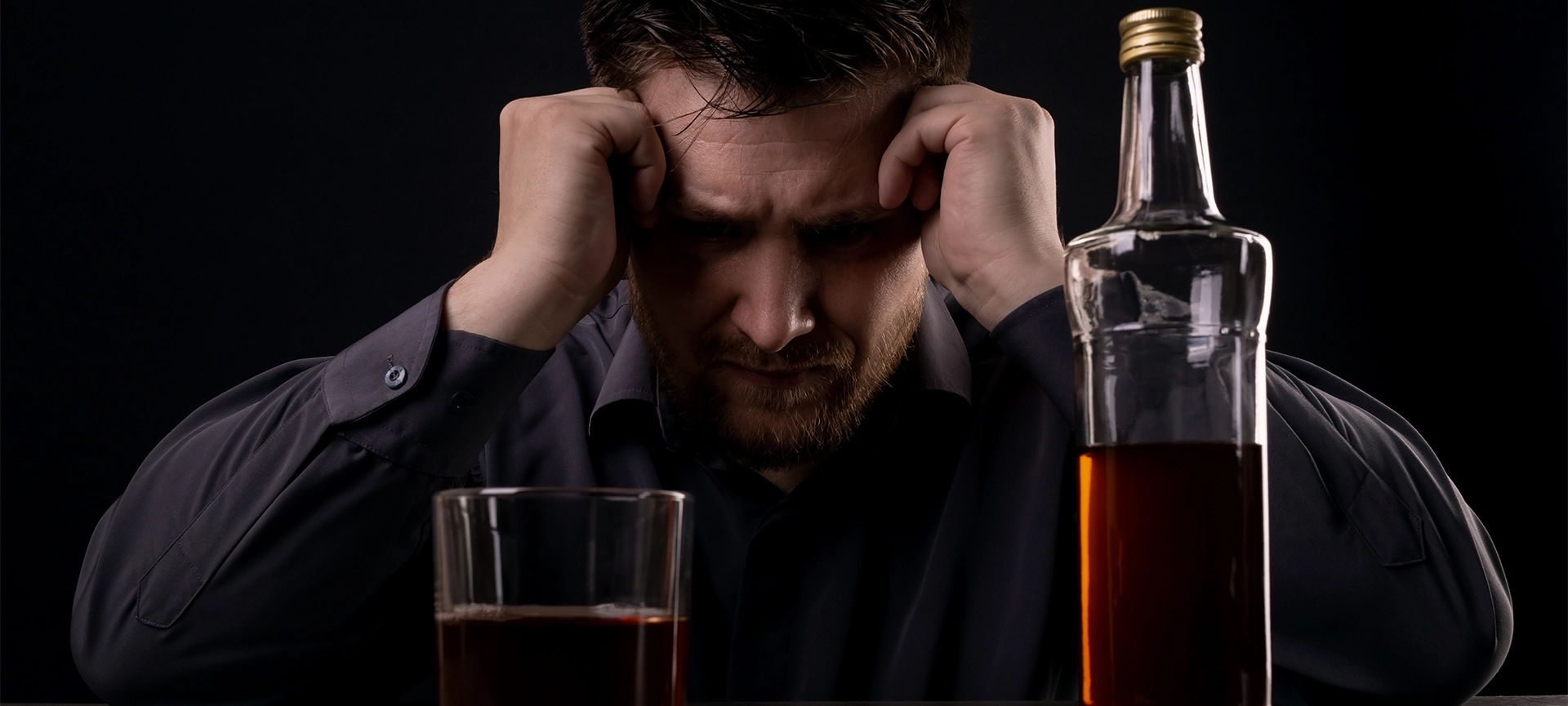Alcohol abuse is a drinking pattern that has become habitual. It begins to have a negative impact on your life, relationships, career, and health. You are abusing alcohol if you are constantly drinking beyond your limits. When you become addicted to alcohol, the term for it is Alcohol Use Disorder or AUD. It can lead to very severe problems in your health and other aspects of your life.
Binge drinking or problem drinking happens when you consume more alcohol than you can handle. In general, drinking one or two alcoholic beverages is considered to be drinking in moderation. Here is a guide on how to determine the equivalent of “one drink.”
- Beer – 12 ounces
- Wine – 5 ounces
- Hard liquor – 1.5 ounces
When you consume one drink, you are drinking moderately. However, there are still factors to be considered by every individual before consuming alcohol. Various alcoholic beverages can have different effects on each person. Here are some of those factors:
- Your genetic background
- Gender and age
- When you started drinking alcohol
- Your overall health and well-being
- How long you have been consuming alcohol
- And the frequency of drinking

Related article: How to Save Yourself from Alcohol Addiction
What is the Difference Between Alcoholism and Alcohol Abuse?
Our bodies react in different ways when we consume alcohol. People who frequently abuse alcohol can develop a dependence on it. However, there are some who do not. For example, it does not follow that if you abuse alcohol, you will lose control when you’re drinking.
Nevertheless, binge drinking is a big factor when it comes to having an increased tolerance for alcohol. When this happens, you are more at risk of becoming an alcoholic.
It is vital to remember that if you struggle with alcohol abuse, it does not necessarily imply that you are an alcohol addict. The terms alcohol abuse and alcoholic are often used interchangeably. But it is important to note that they do not mean the same thing.
Related article: How to Help Your Loved One with Alcohol Addiction
Signs of Alcohol Abuse
For people who abuse alcohol, there can be various reasons why they do this. It can be to deal with trauma, grief, mental health conditions, and others. Knowing if a person is going through issues with alcohol abuse can be a challenge. Nonetheless, there are some guide questions that can help you in identifying if you or someone you know is abusing alcohol.
- Do you feel the need to drink more each time to get the effect you want?
- Have you been drinking heavier beyond the limit you have set for yourself?
- Do you experience discomfort and other difficulties when you try to stop drinking?
- Have your loved ones been expressing their concerns about your drinking habits?
- Do you still drink even when you know it’s already causing damage to your relationships?
- Do you drink even if you know you have to drive and may cause an accident?
- Have you experienced losing consciousness while you’re drinking?
- Do you avoid your obligations and still continue to drink?
- Have you replaced previously enjoyable activities with drinking more?
- Do you lie or hide about your habits when it comes to drinking?
- Do you feel ashamed after you’ve gotten sober?
- Has your drinking brought financial or legal problems?

If you find that you’ve answered more “yes” than “no” in the questions above, then it is an indication that you are having problems with alcohol abuse. It may be difficult to confront yourself with these questions. But it is an important step to determine if your drinking is already causing harm in many aspects of your life.
Related article: Is Depression Related to Alcohol Abuse?
Kinds of Alcohol Abuse
When you drink moderately, it is most likely that you won’t experience any effects. However, there are kinds of alcohol abuse that can cause serious effects on you, both for the short and long-term. Some of the types include heavy alcohol use and binge drinking.
With binge drinking, you have a pattern when it comes to alcohol consumption. For example, having four or more drinks in one sitting is already binge drinking. The problem with this is that you’re consuming large quantities of alcohol within a small period. It can cause you to experience physical and mental problems. You may suffer from alcohol poisoning and injuries from accidents especially if you drive while drunk.
As for heavy alcohol use, it means that you binge drink for about five days in a month. You would drink heavily day after day. This habit can cause serious health problems such as liver disease, heart disease, anemia, and internal stomach bleeding.
When you are a heavy alcohol user, you may experience sleep disorders, anxiety, and depression. It can also cause you to develop certain mental problems such as loss of consciousness and forgetfulness.
Are You a High-Functioning Alcoholic?
Alcohol abuse may not have the same effect on everyone who drinks too much. While many people with alcohol problems become greatly affected by their habits, others can actually function in their day to day tasks. It may seem that these individuals are still in control. But the truth is that they need help as well.
When you try to imagine a typical alcoholic, you may think of someone that you’ve seen on TV or on movies. However, this is not the case because there is no single set of traits that can fully capture an alcoholic.
Yes, there are alcoholics that look dishevelled and are constantly drunk. But there is a huge percentage of people with alcohol abuse problems who are high-functioning individuals.
What does Functional Alcoholism Mean?
Functional alcoholism is among the subtypes of alcoholism. It tries to describe a group of people who may appear to function normally but who nonetheless abuse alcohol. Here are some of the characteristics of a high-functioning alcoholic:
- Your family has a history of alcoholism
- You have a steady relationship with your partner, children, and loved ones
- You are middle-aged
- And you have a stable job
Because of such characteristics, many alcoholics who are functional can hide their problem drinking. It would only be revealed once the problems can no longer be hidden and begin to affect their daily lives.
Signs that You are a High-Functioning Alcoholic
No matter how good you are at pretending that there’s no problem with your alcohol consumption, it is still a serious problem. Alcoholism can greatly affect you and your loved ones.
If you are still in the process of facing the fact that you have a problem with alcohol abuse, here are some signs of being a high-functioning alcoholic. You can check if any of these applies to you.
Do you drink to deal with stress?
As adults, we face many stressors every day. It can be stress from home, work, or relationships. Many try to relax at the end of a busy day by having a drink. However, if you’re already using alcoholic beverages to find some relief from stress, then it can indicate that there’s a problem.
When you drink so you can relieve stress, it can lead to you developing a habit of drinking frequently and heavily. Alcohol may indeed provide some relief and make you feel relaxed. However, if this goes on, you will eventually develop a higher tolerance for it.
Frequence and heavy drinking may then lead to alcohol dependence. When this happens, you will feel cravings for alcohol. You will have trouble concentrating without drinking. And when you don’t drink, you’ll experience withdrawal symptoms.
Alcohol consumption, in the long run, can cause negative effects in your life. You are more likely to suffer from sleeping problems, anxiety, and depression. Drinking to deal with stress will only add to more problems.
Do you drink during the day?
When you become dependent on alcohol, you will experience uncomfortable withdrawal symptoms when you stop drinking. To stop this from happening, you’d feel the need to drink even during the day. It is possible that you drink alcohol while at work. Maybe the first thing that you do when you wake up is to have a drink so that you’d feel normal.
Some of the withdrawal symptoms that you may feel when you stop drinking are nausea, sweating, fatigue, anxiety, and headache. It may become apparent within 24 hours after your last drink. If you’re a high-functioning alcoholic, you may be drinking during the day so that you won’t experience any of these withdrawal symptoms.
Do you drink alone?
Once addicted to alcohol, you no longer feel the need to have some company while drinking. It is no longer a social thing for you like during celebrations and festivities. What’s more important is that you get to have your drink so you don’t mind drinking alone. Also, it may be because you’re ashamed of your heavy drinking and you don’t want people to know that it has become a problem.
Do you often find yourself alone in your house drinking? Do you avoid people so that you won’t be judged by the way you drink so heavily and frequently? Try to confront yourself with these questions. It may help you move forward in seeking help and dealing with your problems with alcohol abuse.
Takeaway
Even high-functioning alcoholism is still alcoholism. It can lead to damaging effects on your life. Alcohol abuse shouldn’t be taken lightly. If you feel you can still function even with heavy drinking, you need to confront yourself about the real problem. Why do you feel the need to drink in the first place? By asking yourself the important questions, you can better address the problems that you are trying to hide.
Don’t feel ashamed that you need to ask for help. No person who is addicted to a substance can go through recovery alone. It is vital that you seek help and support as soon as possible. You’re not alone in going through this process. You’ll find the power to fight the addiction through the encouragement of others who have successfully fought their battle.
Related article: Top Treatments to Address Alcohol Addiction







